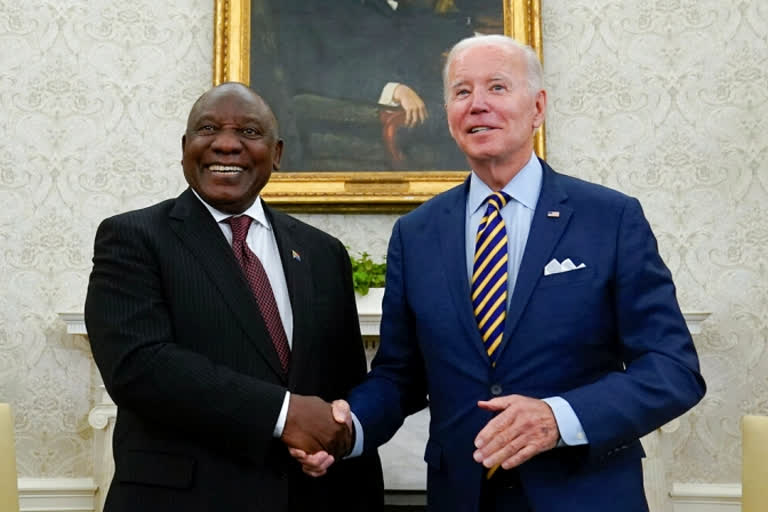Washington: President Joe Biden praised South Africa as a vital voice on the global stage as he hosted President Cyril Ramaphosa on Friday at the White House for talks that touched on the two nations' differences on Russia's war in Ukraine and more. In a brief appearance before the media at the start of their meeting, Biden made no direct mention that Ramaphosa is among African leaders who have maintained a neutral stance in the aftermath of Russia's invasion of Ukraine. South Africa abstained from a United Nations vote condemning Russia's actions and calling for a mediated settlement.
But the president seemed to offer a subtle recognition that the two countries have their differences. "We really need to make sure we fully understand one another," said Biden, who heaped praise on Ramaphosa for his country's leadership on fighting the COVID-19 pandemic, the impact of climate change and other issues.
Following the meeting, Ramaphosa told reporters that South Africa's position on the conflict is "respected" and that both he and Biden agreed they "would like this conflict to come to an end as soon as possible." Ahead of the meeting, South Africa's international relations minister, Naledi Pandor, said finding an endgame to the Ukraine war will be South Africa's focus when it participates in the annual meeting of the U.N. General Assembly next week.
"We would want a process of diplomacy to be initiated between the two parties and we believe the U.N. must lead, the U.N secretary-general in particular," Pandor said. The White House meeting came on the heels of Secretary of State Antony Blinken's visit to South Africa last month, in which he said the Biden administration sees Africa's 54 nations as "equal partners" in tackling global problems.
But the administration has been disappointed that South Africa and much of the continent have declined to follow the U.S. in condemning the Russian invasion of Ukraine. During the Blinken visit, Pandor accused the U.S. and other Western powers of focusing on the Ukraine conflict to the detriment of crises around the globe. "We should be equally concerned at what is happening to the people of Palestine, as we are with what is happening to the people of Ukraine," she said.
